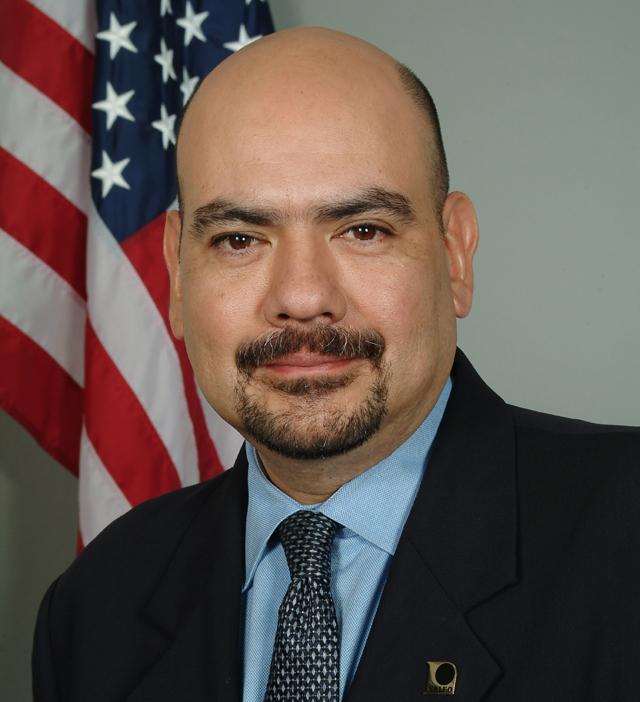 Imagine that you are standing on a track, about to run toward a distant finish line. Suddenly, a wall appears between you and the finish line, and then another, and yet another after that.
Imagine that you are standing on a track, about to run toward a distant finish line. Suddenly, a wall appears between you and the finish line, and then another, and yet another after that.
Over the course of the past decade, states have raced each other to construct more and higher walls in the way of prospective voters. Last week, however, a federal court that sits one step below the Supreme Court voted to knock down one such barrier, an Arizona mandate that new registrants not just affirm their U.S. citizenship, but provide documentary proof to state elections officials. The Mexican American Legal Defense and Educational Fund played a key role in litigating the case and securing this important court victory.
Voter registration should be an easy and accessible process, and most states only require a signed form where voters confirm their identity and citizenship status. Nonetheless, several states have followed the path established by Arizona when it adopted a proof of citizenship law in 2004, imposing yet another demand on citizens wishing to take part in the American political process.
It did not take long for evidence to emerge in Arizona and elsewhere that many Americans – particularly Latino U.S. citizens – simply do not have immediate or free access to proof of citizenship. Before government registration of births was a routine, universal practice, Latino families often had the least access to formal health care. As a result, Latinos are less likely than other native-born citizens to possess a state-issued birth certificate. Such individuals often cannot satisfy requirements for obtaining alternate proof of citizenship; laws like Arizona’s put them at risk of being permanently barred from voting by virtue of having been born at home.
Ostensibly designed to prevent misdeeds that rarely occur, like false impersonation of a voter, the walls that states have erected do far more to discourage active citizenship than guarantee election integrity. In Arizona, more than 31,550 voter registration applications were rejected for lack of proof of citizenship between January 2005 and fall 2007. Though 90% of those submitting rejected applications listed the United States as their place of birth, only about one third of these individuals were ultimately successful in registering. Most or all of the remaining 20,000 voters did not fail to register because they were ineligible – instead, they were simply unable to scale the wall in Arizona because of lack of time or resources, or inability to obtain sufficient proof of their nationality.
Acquiring new proof of citizenship is never free, which means that laws like Arizona’s impose poll taxes on many aspiring voters. It has long been established, however, that it is unconstitutional to require citizens to pay to vote. States generally charge unwaivable fees for certified copies of birth certificates, and Arizona is no different in this regard. Other forms of proof carry steep costs, from $55 for a passport card which cannot be had without independent proof of citizenship to $345 for a replacement certificate of naturalization, and a whopping $600 for a certificate of citizenship issued by U.S. Citizenship and Immigration Services. A significant number of Arizona’s Latino voters are naturalized citizens, and would be subject to these prohibitive fees if forced to obtain documentation of citizenship.
With 2010 Census data showing Latinos are the nation’s second largest population group (growing at a rate of 43%) in this country, now is not the time to discourage participation by those citizens who are shaping the future of American politics. A strong and vibrant democracy strengthens our nation, and it is in our collective best interest to work together to continue to tear down the walls and clear the way for every American – rich and poor, young and old, native-born and naturalized – to access the ballot box.
We are pleased to see the 9th Federal Circuit Court make a principled decision that protects and upholds the precious right to vote, and we look forward to continuing to work to eliminate voting obstacles so that all Americans are able to reach the finish line. Our organization the National Association of Latino Elected and Appointed Officials (NALEO) Educational Fund projects that 12.2 million Latinos will reach this important milestone this year, and we will be hard at work in the coming months to ensure that even more Latino voters are able to cross the finish line on November 6th.
Arturo Vargas is the Executive Director of the National Association of Latino Elected and Appointed Officials (NALEO) Educational Fund. The organization is the nation’s leading non-partisan, non-profit organization that facilitates full Latino participation in the American political process, from citizenship to public service.

Recent Comments